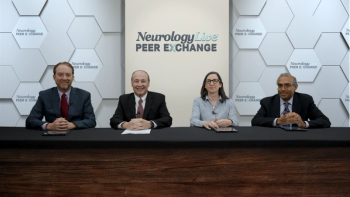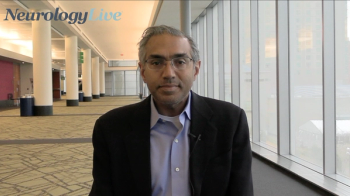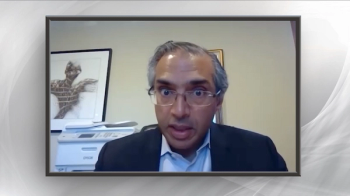Articles by Rajeev Kumar, MD

Panelists discuss how challenges in prescribing subcutaneous infusion systems might affect patient adherence and device management, best practices for patient education, and what additional data would benefit clinicians implementing newer Parkinson disease treatments.

Panelists discuss how 24-hour delivery of continuous subcutaneous infusion therapies impacts nonmotor symptoms and quality of life indicators for patients with Parkinson disease.

Panelists discuss how medical professionals have incorporated continuous subcutaneous infusion systems into their clinical practice.

Panelists discuss how medical professionals view continuous subcutaneous infusion systems for managing Parkinson disease and their evolving role in treatment timing.

Panelists discuss how continuous subcutaneous apomorphine infusion pump has progressed through the TOLEDO and Infus-ON studies to recently receive FDA approval.

Panelists discuss how ND0612, another subcutaneous infusion of levodopa currently under FDA review, performs in terms of formulation, efficacy, safety, and quality of life based on the phase 3 BouNDless study.

Panelists discuss how patients have experienced continuous subcutaneous infusion therapy from the perspective of medical professionals.

Panelists discuss how phase 3 clinical trials demonstrated the efficacy, safety, and quality of life improvements associated with continuous subcutaneous foscarbidopa/foslevodopa in both short-term and long-term studies.

Panelists discuss how continuous subcutaneous delivery systems benefit patients compared to standard care, with focus on foscarbidopa/foslevodopa as the first FDA-approved 24-hour infusion treatment for Parkinson motor symptoms.

Panelists discuss how pharmacokinetic challenges with oral levodopa formulations have led to the development of levodopa-based continuous subcutaneous infusion therapy as a less invasive and more personalized approach.

Panelists discuss how limitations persist with current long-term treatment standards for Parkinson disease despite advancements in treatment options.

Panelists discuss how alternative formulations and administration routes like Levodopa/carbidopa intestinal gel and deep brain stimulation have impacted advanced Parkinson disease management, including which patient populations benefit most and when these options are recommended.

Panelists discuss how medical professionals adjust treatment regimens and create individualized plans as Parkinson disease advances in their patients.

Panelists discuss how medical professionals determine the most appropriate treatment options for patients with advanced Parkinson disease and the challenges patients face as their disease progresses over time.

The medical director of the Rocky Mountain Movement Disorders Center talked about the motivations of the phase 2 study on ANX005 for Huntington disease at the 2023 AAN Annual Meeting. [WATCH TIME: 3 minutes]






























